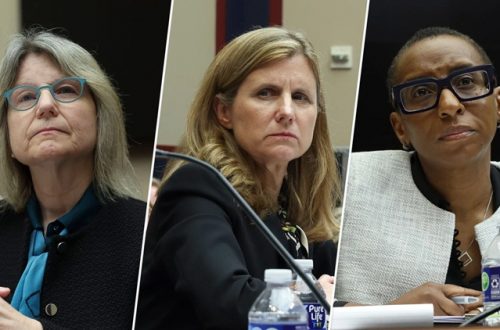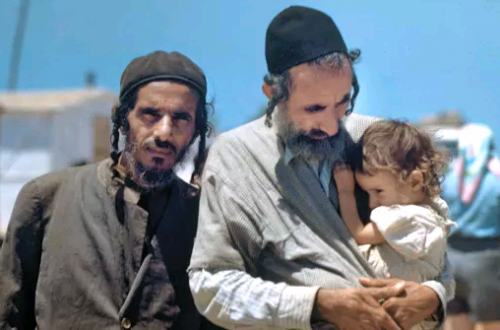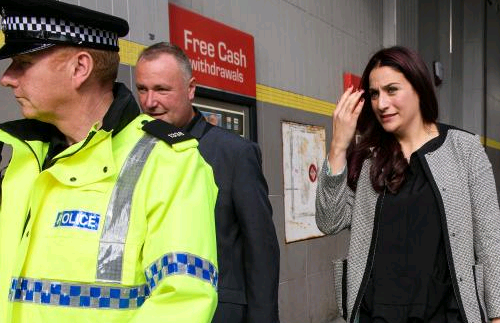Last night’s debate at the House of Lords, chaired by Baroness Cox, focused on the way extremists and their liberal enablers have hijacked interfaith activity with various unwelcome results. Sam Westrop argued that interfaith dialogue too often legitimizes extremism, and sometimes quite shamefully demands/colludes in the exclusion of certain groups, most notably the Ahmadis.
An Ahmadi spokesman presented his vision of Islam as a peaceful and tolerant religion. You could almost hear the minds of audience members fill in the missing bits of the Suras for themselves. For, yes, the whole experience was rather like a more immersive version of a Harry’s Place thread. Douglas Murray’s response represented an advance on some our own commenters though:
If that is your interpretation of Islam – I am delighted.
Murray questioned the point of interfaith dialogue, given that people of different religious beliefs are severely limited in how much common ground they can meaningfully find. He also spoke eloquently of the way in which Muslims have been let down by the establishment’s decision to engage with hardline representatives of Islam. He emphasized the need to treat people as individual citizens and avoid dialogue with extremists, whether violent or non-violent.
Perhaps the most charismatic speaker was Muhammd al-Hussaini, who spoke passionately about the persecution of Christians in the Middle East, the rising tide of antisemitism in the world today, and genocide in Bangladesh. He lambasted many interfaith representatives, particularly Jews and Christians, noting wryly ‘it isn’t the Islamists’ fault at all’ – for they are just doing their job, as it were. He suggested that some liberal Anglicans, faced with empty churches, were looking for a cause to add meaning to their lives.
Mehrdad made a telling point about the vital importance of acknowledging that extremism need not be violent. He asked the Revd Peter Colwell, a minister from the United Reformed Church, whether he would hesitate before sitting down to a discussion with someone who thought that, in an ideal state, homosexuality should be punished by death. Colwell’s first response was to note that some Christians didn’t think men and women are fully equal. (I was moved to put three exclamation marks in my notebook at this point.) His next observation, that some Christians had similarly harsh views, was more pertinent, although not precisely an answer to the question.
Later Colwell addressed Mehrdad again, and admitted that his response had not been adequate. He said, in relation to the discussion as a whole:
I am disturbed by what I am hearing.
It was a pity that there wasn’t more diversity of opinion on the panel. This wasn’t the fault of the organisers – they had invited representatives from the interfaith network to take part but no one accepted the invitation. It was a lively event – but would have been still more stimulating if Farooq Murad had been there to answer a few questions.
Update: Copies of Stand For Peace’s ‘Interfaith Industry’ report were given to attendees, and you can also read it here.
Update 2: Here’s are some further reflections on the event from Mehrdad.
The Reverend Colwell’s response to my question was so typical of a polite and competitively altruistic liberal.
He began with moral equivalence: “There are Christians who also believe that gays should be killed”.
Clearly, this is a pretty disingenuous claim as no prominent or mainstream Christian organisation says any such thing and as Douglas Murray pointed out, such organisations would never be engaged with by the government or the interfaith industry.
Unquestioning ‘respect’ and engagement is a privilege uniquely afforded to Muslim groups.
The Reverend then made the excuse that it wasn’t practical to vet the people and organisations with whom he engaged.
I replied, “Ask the question! Do you support the killing of a man who has sex with another man or else the killing of a Muslim who leaves Islam, here, elsewhere, today or in an ‘ideal’ Islamic state. And if the answer is equivocal then don’t talk to that person!”
Once more, Douglas Murray made an excellent point – that we have the BBC, radio, newspapers and the Internet so the Reverend doesn’t really have a good excuse for not knowing that he is engaging with someone who upholds repulsive and extremist views.
Today, I wrote to the Reverend Colwell:
“I have come to the conclusion that good Christians are sometimes so keen on seeing the good around them that they can sometimes fail to see badness, especially if that badness is deliberately hidden by less genuine people.”
I also sent him a link to my piece “The Quiet Death of Moderate Islam” so that perhaps he can understand the harm he is doing to genuine liberal Muslims.
Clearly the Reverend was unsettled by my questioning and during his summing up he referred back to me, acknowledging that his response to me had been inadequate, and admitting that he was disturbed by what he was hearing.
On the tube home, I laughed to myself as I imagined the scene from the first Matrix film where Keanu Reeves wakes up and realises that his reality is actually a cosy and elaborate illusion.
Perhaps last night was the start of the Reverend Colwell waking up to reality.


